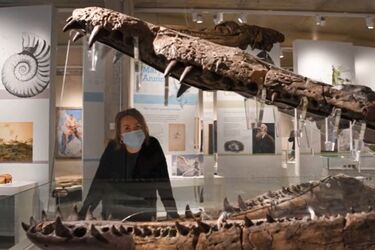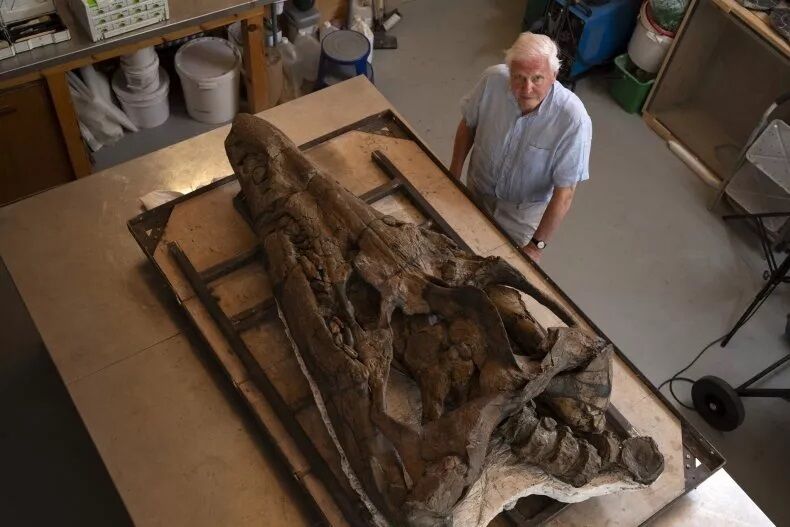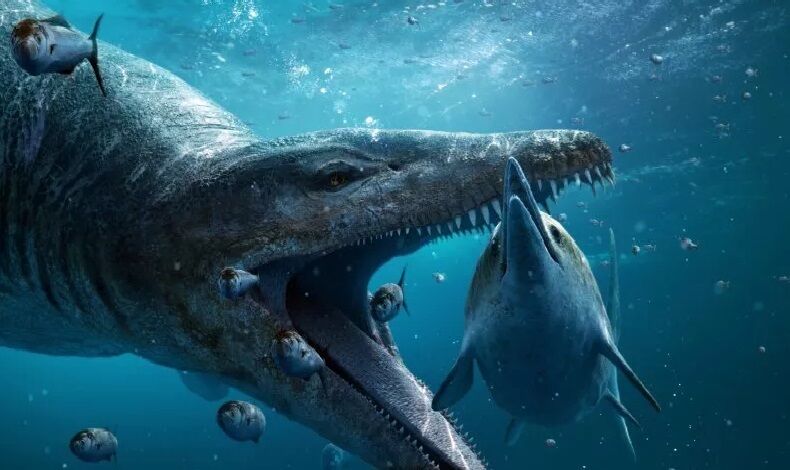Extinct sea monster suddenly found in England while walking on the beach (photo)

The most complete fossil of a giant sea monster that lived about 150 million years ago was found on a beach in England. It was discovered by accident during a casual walk on the beach.
It was the skull of a pliosaur, a predatory marine reptile that lived in the ocean. The man who found the remains of the creature turned out to be a fossil enthusiast, Newsweek writes.
The fossil was found on the seashore and was covered with a layer of clay and sand. It was so well preserved that it even retained some of the soft tissue of the skull.

The Jurassic Coast in Dorset, England, is known for its many fossils, but a recent discovery may be one of the most important.
Read also: Rock paintings with images of creepy creatures 40 thousand years old discovered in Tanzania
"In April 2022, a fossil enthusiast found the skull of a pliosaur, a carnivorous marine reptile that lived about 150 million years ago. The skull is about six and a half feet long and is one of the most complete specimens of its type ever discovered," the publication writes.
Pliosaurs lived between 220 and 70 million years ago, and they were not dinosaurs, although they had similar characteristics. They were one of the tallest predators in the seas of their time and could reach a length of up to 15 meters.

The skull found in Dorset belongs to a species known as the plesiosaurus ichthyosaurus. It has a massive skull with 130 razor-sharp teeth. These teeth were ideal for killing fish and other marine animals.
Paleontologists believe that this discovery may help them better understand the evolution of pliosaurs and their role in Jurassic marine ecosystems.
"This is a fantastic new discovery and undoubtedly one of the most impressive British reptile fossils discovered in recent years," said Stephen Brusatt, Professor of Paleontology and Evolution at the University of Edinburgh.
"The length of the skull and sharp teeth indicate that it was a vicious predator in the seas. The skull is so well-preserved that I'm thrilled," he added.
The fossil will be on display at the Etches Jurassic Marine Life Museum in the village of Kimmeridge, Dorset.
As a reminder, a rare treasure of medieval coins from the 11th century was found by a metal detector in Poland.
If you want to get the latest news about the war and events in Ukraine, subscribe to our Telegram channel!
